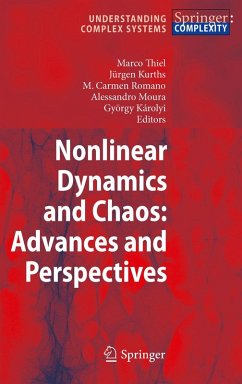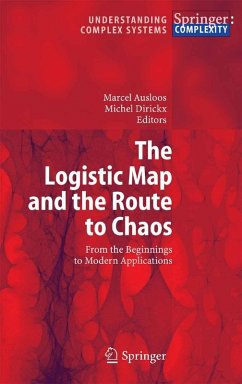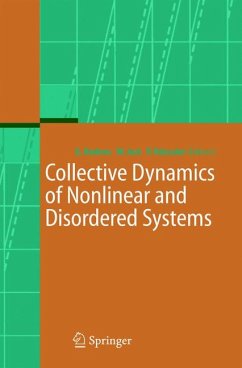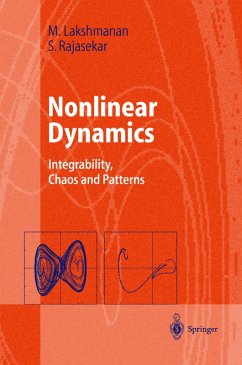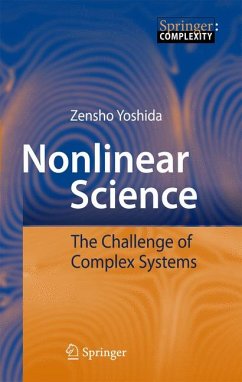
Nonlinear Science (eBook, PDF)
The Challenge of Complex Systems
Versandkostenfrei!
Sofort per Download lieferbar
72,95 €
inkl. MwSt.
Weitere Ausgaben:

PAYBACK Punkte
36 °P sammeln!
Modern science has abstracted, as compensation for establishing rigorousness, the complexity of the real world, and has inclined toward oversimpli?ed ?ctitious n- ratives; as a result, a disjunction has emerged between the wisdom of science and reality. Re?ecting on this, we see the need for science to recover reality; can it reveal new avenues for thought and investigation of the complexity? The study of science is the pursuit of clarity and distinctness. Physics,after Galilei placed it in the realm of mathematics, has been trying to establish clearness by mathematical logic. While physics an...
Modern science has abstracted, as compensation for establishing rigorousness, the complexity of the real world, and has inclined toward oversimpli?ed ?ctitious n- ratives; as a result, a disjunction has emerged between the wisdom of science and reality. Re?ecting on this, we see the need for science to recover reality; can it reveal new avenues for thought and investigation of the complexity? The study of science is the pursuit of clarity and distinctness. Physics,after Galilei placed it in the realm of mathematics, has been trying to establish clearness by mathematical logic. While physics and mathematics, respectively, have different intellectual incentives, they have intersected in history on countless occasions and have woven a ?awless system of wisdom. The core of rigorous science is always made of mathematical logic; the laws of science cannot be represented without the language of mathematics. Conversely, it is undoubtedly dif?cult to stimulate ma- ematical intellect without a reference to the interests of science that are directed to the real world. However, various criticisms have been raised against the discourses of sciences that explain the events of the real world as if they are "governed" by mathematical laws. Sciences, being combined with technologies, have permeated, in the form of technical rationalism, the domain of life, politics, and even the psychological world. The criticisms accuse seemingly logical scienti?c narratives of being responsible for widespread destruction and emergence of crises, unprecedented suffering of hum- ity.
Dieser Download kann aus rechtlichen Gründen nur mit Rechnungsadresse in A, B, BG, CY, CZ, D, DK, EW, E, FIN, F, GR, HR, H, IRL, I, LT, L, LR, M, NL, PL, P, R, S, SLO, SK ausgeliefert werden.






